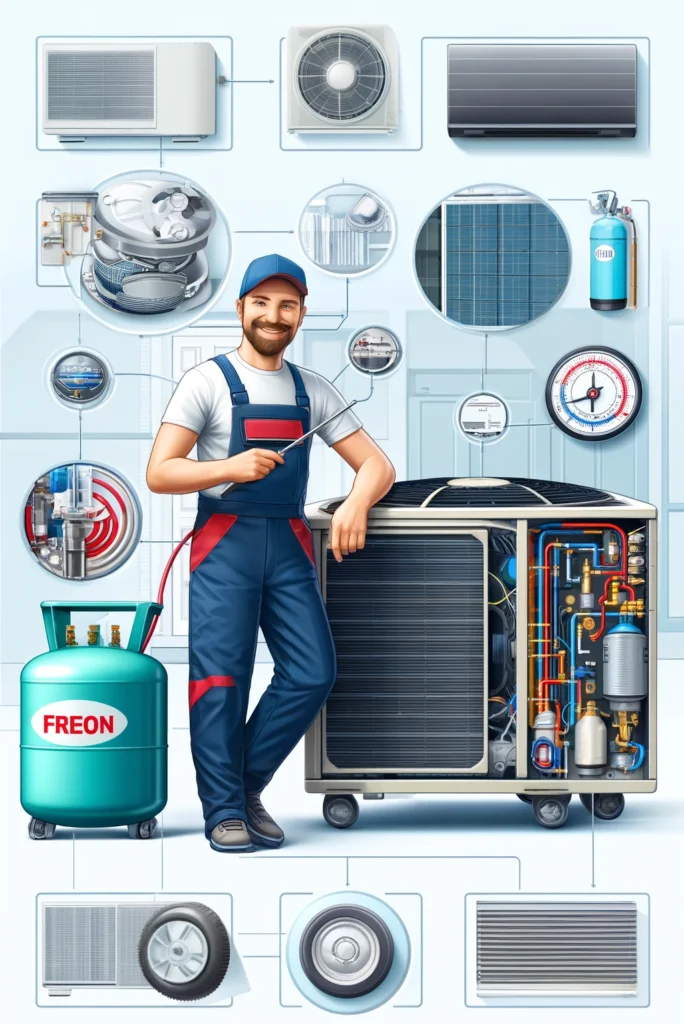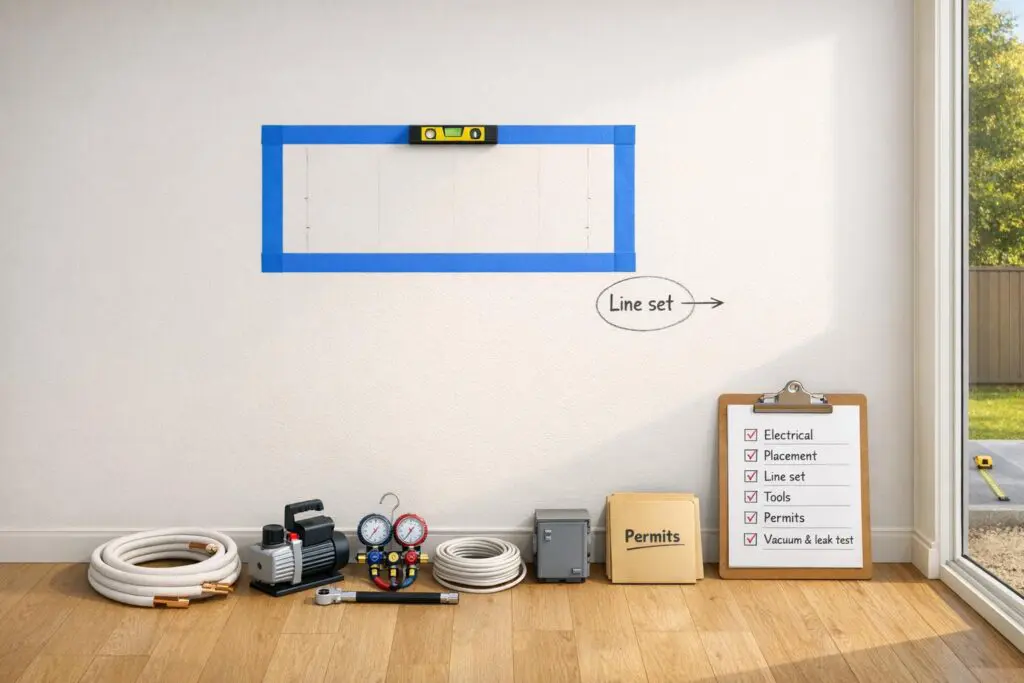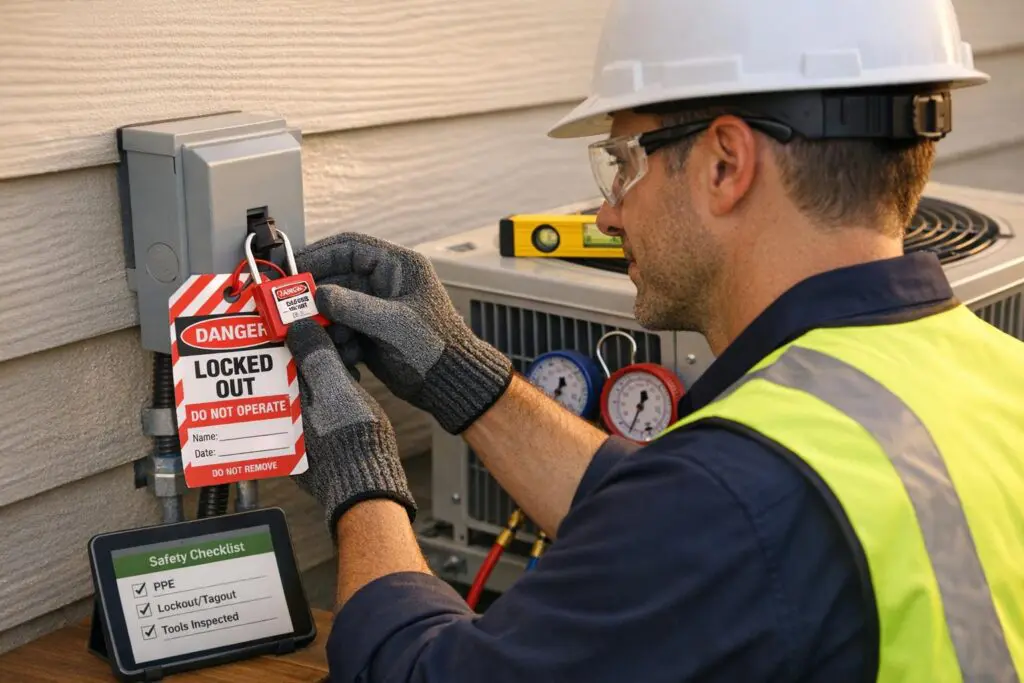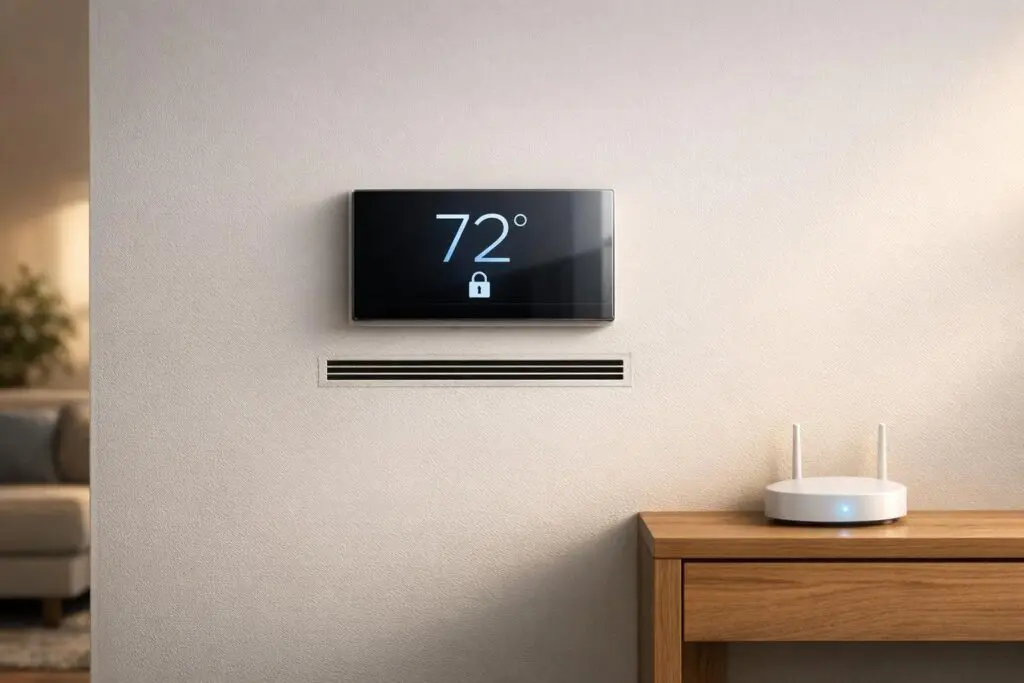Freon, a term often used in the context of air conditioning, is more than just a buzzword.
It’s a critical component in HVAC systems, playing a pivotal role in cooling our homes and offices.
But what exactly is Freon? Why is it so important in HVAC systems?
This article aims to demystify Freon, exploring its chemical properties, historical development, and environmental impact.
We’ll also delve into the costs associated with Freon, how to charge an AC unit and the future of refrigerants.
Whether you’re a homeowner, an HVAC professional, or simply curious, this comprehensive guide will provide valuable insights into the world of Freon and its significance in our daily lives.
The Chemistry and Function of Freon in HVAC Systems
Freon is a brand name for a group of chemicals known as chlorofluorocarbons (CFCs) and hydrochlorofluorocarbons (HCFCs).
These compounds are non-toxic, non-flammable, and stable, making them ideal for use in HVAC systems.
Freon’s primary function is to serve as a refrigerant, a substance that absorbs and releases heat to cool our surroundings.
In an HVAC system, Freon absorbs heat from the indoor air and releases it outside, effectively cooling the interior space.
This heat exchange process is fundamental to air conditioning, and Freon’s unique properties make it highly efficient at this task.
Historical Development and Environmental Impact
Freon was developed in the 1920s as a safer alternative to the hazardous refrigerants used at the time.
Its widespread adoption revolutionized the HVAC industry, making air conditioning safer and more accessible.
However, by the mid-20th century, scientists discovered that Freon, particularly CFCs and HCFCs, was depleting the ozone layer.
This revelation led to international efforts to phase out these harmful substances, a topic we’ll explore in more detail later.
Freon’s Role in Heat Exchange and System Efficiency
Freon’s role in heat exchange is central to the operation of an HVAC system.
When the system is on, Freon evaporates and absorbs heat from the indoor air.
This cooled air is then circulated back into the room, resulting in a comfortable indoor temperature.
Without Freon or a similar refrigerant, this heat exchange process, and by extension air conditioning, would not be possible.
Moreover, the efficiency of an HVAC system largely depends on the type and condition of the refrigerant used, underscoring the importance of proper Freon management.
Legal Status and Phase-Out of Certain Freon Types
The environmental impact of Freon has led to changes in its legal status worldwide.
In particular, the production and use of CFCs and HCFCs, the most ozone-depleting types of Freon, have been phased out in many countries.
This phase-out is part of an international effort to protect the ozone layer and mitigate climate change.
However, some types of Freon, such as hydrofluorocarbons (HFCs), are still in use despite their potential contribution to global warming.
The Montreal Protocol and Its Implications for Freon Use
The Montreal Protocol, signed in 1987, is a landmark international treaty aimed at protecting the ozone layer.
It mandates the phase-out of ozone-depleting substances, including CFCs and HCFCs
This treaty has significantly impacted Freon usage, leading to the development and adoption of alternative refrigerants worldwide and in Chicago.
Transitioning to Eco-Friendly Refrigerants
The phase-out of Freon has spurred the search for eco-friendly refrigerants.
These alternatives aim to provide the same cooling efficiency as Freon without environmental harm.
Transitioning to these new refrigerants is a complex process, involving changes in HVAC system design, manufacturing, and maintenance.
Managing Freon: Costs, Charging, and Maintenance
Managing Freon in HVAC systems involves understanding its costs, how to charge an AC unit, and the importance of regular maintenance.
The cost of Freon can vary depending on market demand, regulations, and the specific type of Freon used.
Proper charging and maintenance of HVAC systems are crucial to prevent Freon leaks, which can harm the environment and reduce system efficiency.
How Much Does Freon Cost for Home Air Conditioners?
The cost of Freon for home air conditioners can vary widely and your air conditioner should not normally leak freon. If your AC is leaking freon and needs a recharge then you may need an AC repair as well.
Factors influencing the price include the type of Freon, market demand, and the size and efficiency of the AC unit. Pricing can vary from just $100 to $1,000.
The Process of Charging an AC Unit with Freon
Charging an AC unit with Freon involves several steps.
First, the current level of Freon in the system must be checked.
Then, if necessary, additional Freon is added until the system reaches the optimal level for efficient operation.
If you see a liquid near your air conditioning unit it is more than likely not freon, find out why your AC might be leaking and what to do.
The Future of Refrigerants Beyond Freon
The future of refrigerants is moving beyond Freon due to environmental concerns and regulatory changes.
Newer refrigerants are being developed that are less harmful to the ozone layer and have lower global warming potential.
The transition to these alternatives is influencing HVAC system design and manufacturing, as well as the practices of HVAC professionals.
Innovations and Sustainable Alternatives
Innovation in the refrigerant industry is driven by the need for sustainable alternatives to Freon.
These alternatives not only need to be environmentally friendly, but also efficient and cost-effective.
The adoption of these new refrigerants is supported by government incentives, industry standards, and increasing consumer awareness of environmental issues.
The Significance of Freon in Modern HVAC Systems
Despite the ongoing transition to more sustainable alternatives, Freon’s role in modern HVAC systems cannot be understated.
Its historical and current usage has shaped the industry, influencing system design, efficiency, and the practices of HVAC professionals.
Your Top Choice for Quality Air Conditioning Services in Chicago
With nearly a decade of experience in the HVAC industry, Eco Temp HVAC has been a trusted provider of top-notch air conditioning services for the Chicago and Lemont areas. Our comprehensive offerings include AC repair and AC replacement, ensuring your cooling system operates at peak performance.
For more information about annual maintenance, repairs, or replacements for your AC system, give us a call now to speak with one of our representatives. To get started with your free quote, you can easily book online.
Learn more about if it’s time for an air conditioner repair or replacement.
Choose Eco Temp HVAC for your air conditioning needs and experience exceptional service from a company you can trust.












